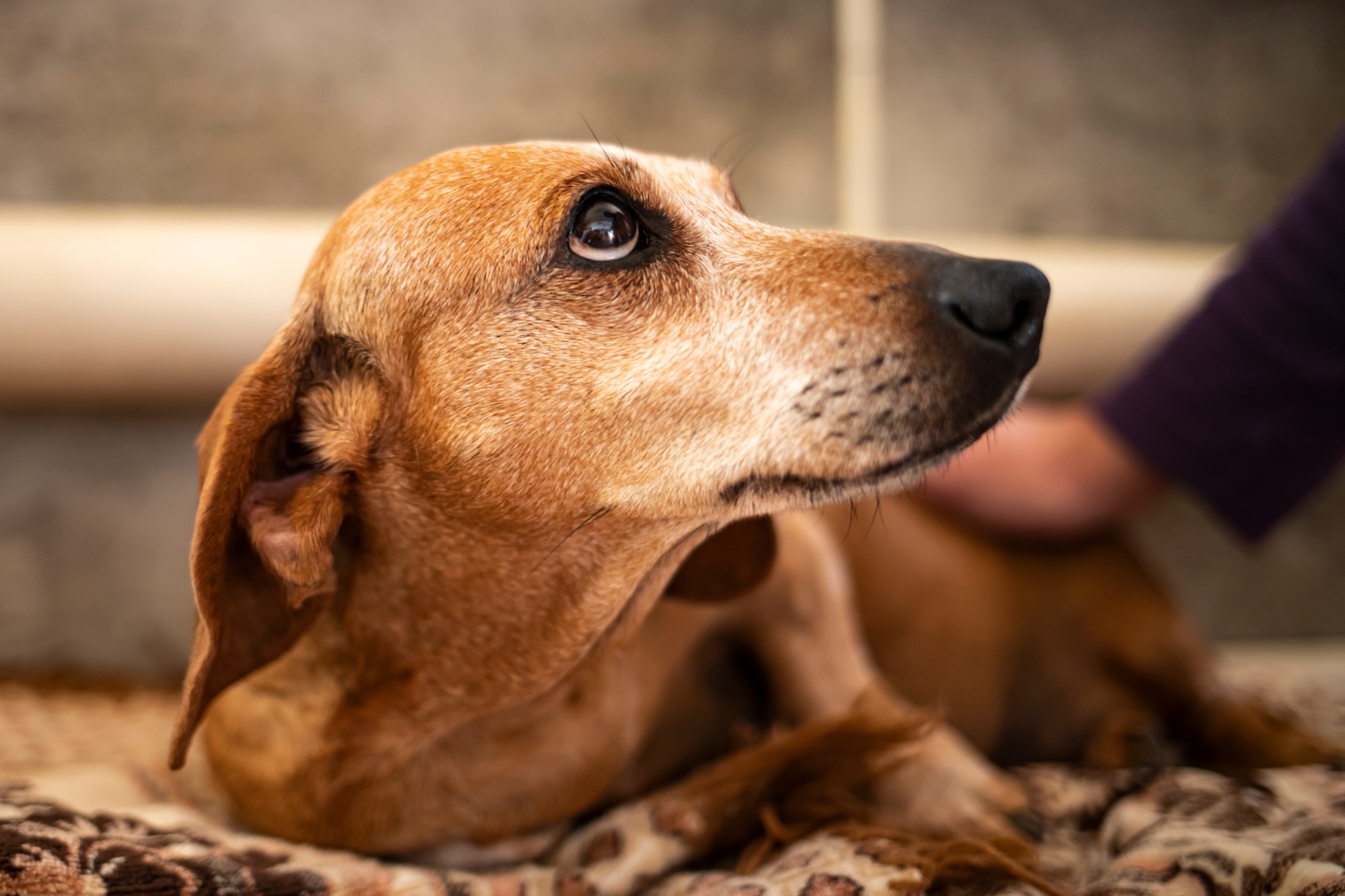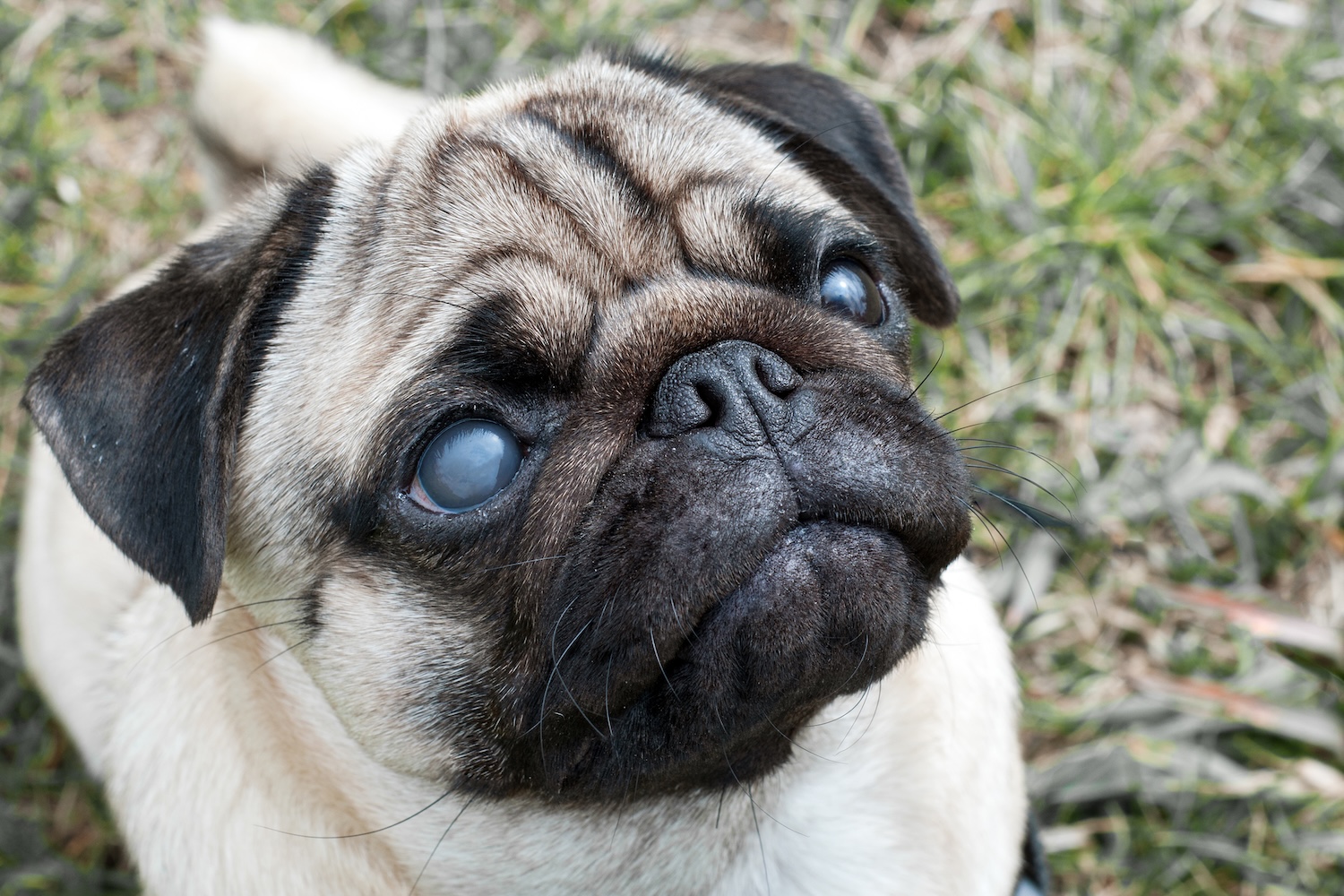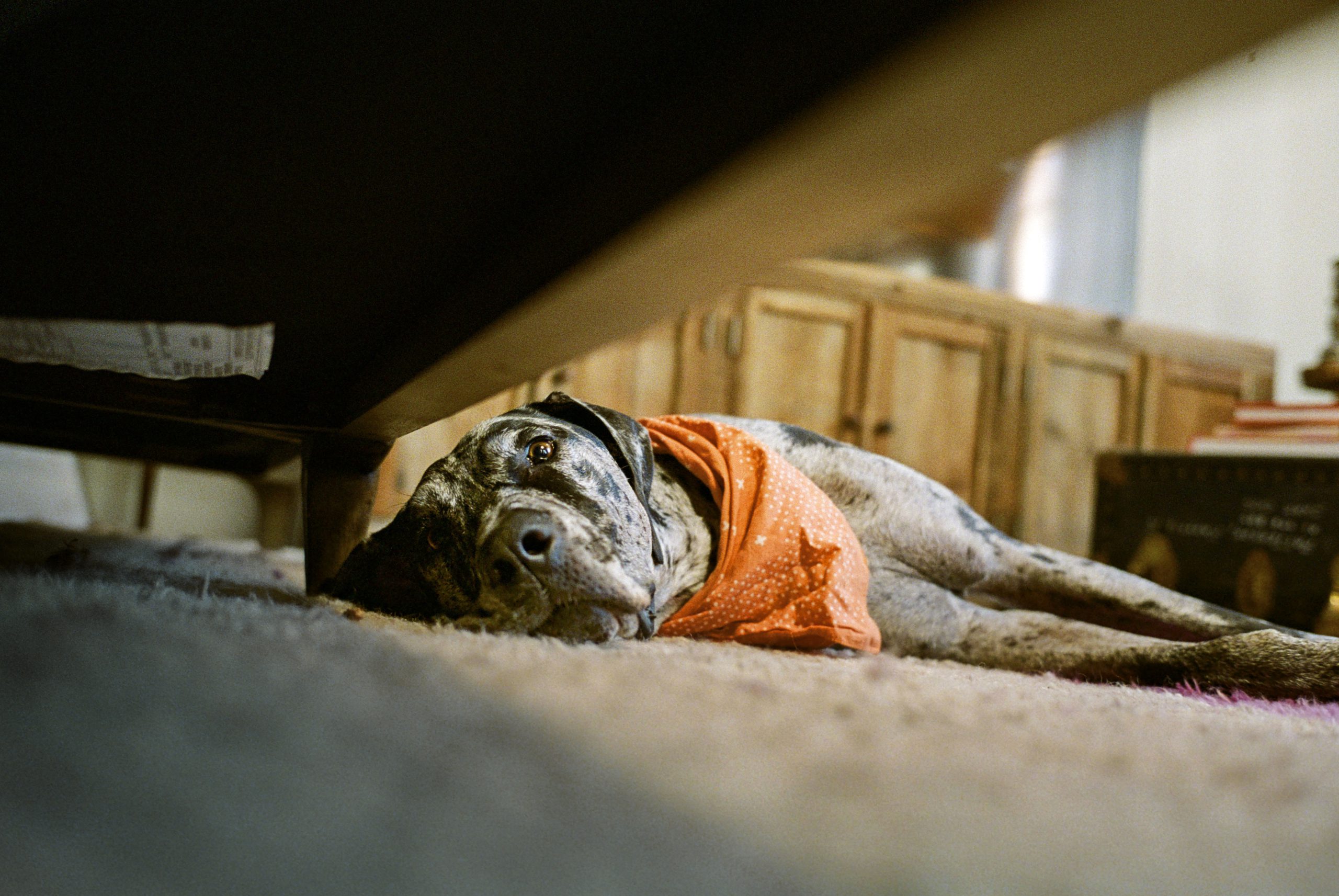We all want our dogs to produce high-quality poops—but not to eat them. Unfortunately, not every dog sees it that way. If your dog finds excrement appetizing, know that you’re not alone—while this habit is disgusting to humans, it’s fairly common. In fact, it even has a scientific name: coprophagia.
Here’s some information about why dogs eat poop, and how to encourage them to choose something more nutritious instead.
Why dogs eat poop, and how to address each reason
If your dog eats their own waste, try not to panic—while it’s an unsavory meal, most veterinarians say it’s unlikely to make them sick. Eating other animals’ feces, on the other hand, could expose dogs to parasites and other illnesses, plus harmful substances like the remnants of medications.
It’s not always possible to know why a particular dog opts to eat poop—but here are some typically cited reasons and strategies for coping with them.
Eating poop “because it’s there”
What we mean: While eating feces may not be an achievement on par with scaling Mount Everest, dogs’ reason for stool consumption may share something with George Mallory’s stated motivation for climbing that peak (“because it’s there”). Puppies, especially, may want to discover how nearly everything around them tastes—even their own poop and that of other creatures. Dogs who eat too close to where they go to the bathroom may also develop an association between the smells of food and used-to-be-food.
There’s also the “I learned it by watching you” reason. Mother dogs clean up after their puppies and keep their living areas clean in part by eating their poop, and some dogs may pick up and retain the behavior after witnessing it.
Human survey respondents in one recent study, conducted by board certified veterinary behaviorist Benjamin Hart et al, most commonly observed their dogs eating fresh stools. For this reason, Hart and his colleagues hypothesized that our canine companions may have inherited an instinctual poop-eating behavior from their wolf ancestors, who consumed fresh feces to prevent parasites from spreading. The study found that 16% of participating dogs were “frequent” poop eaters—those observed snacking on stool at least six times. Researchers also found that the off-the-shelf products designed to stop dogs from eating poop almost never worked. But don’t be discouraged…
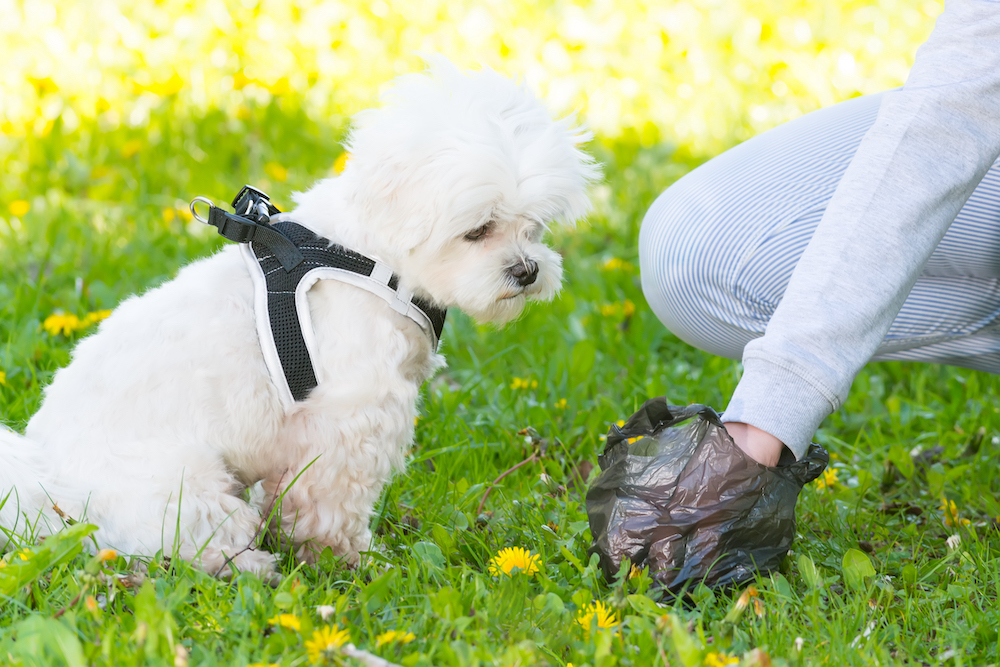
How to stop it: Give them fewer opportunities. The most effective way to prevent your dog from eating poop, if they’re doing so for reasons not related to illness or inadequate nutrition, is to remove the temptation. If your poop-loving pooch is never within excrement-eating range, they won’t do it. They can’t order a #2 on DoorDash. So clean up their bowel movements right away when you’re on walks, keep their crate and other living areas clean, and try your best to limit their access to places where they might find their favorite guilty pleasure (their own or other animals’ poop). Among other things, this means keeping the cat’s litter box out of reach.
Of course, no matter how careful you are, any dog is going to sometimes find itself near dung, if only on walks or at the park. For those times, it’s good to have some strategies up your sleeve. For example…
Teach “leave it” and recall: The “leave it” command is a versatile tool that can keep your dog away not only from intestinal nuggets, but also from all manner of foods, objects, and prey that you’d much rather they not try to ingest. If you want to get started on “leave it,” read our guide to the versatile command.
If you’re dealing with a situation in which your dog can’t resist the siren call of feces, you may want to think twice about leaving them at a dog daycare or anywhere else where they might have access to other dogs’ deposits. The reality of such places is that their staffs are not likely to have a 100% success rate at cleaning up and supervising dogs who are determined to dine on doody.
Eating poop due to anxiety or boredom
What we mean: Dogs may eat feces if they’re not getting enough exercise or mental stimulation—hey, it’s something to do. That could be one reason that dogs who spend a long time confined or isolated sometimes resort to dookie-eating.
Dogs who are yelled at for going to the bathroom at the wrong time or in the wrong place may eat their own poop to “hide the evidence,” so remember to use proper potty training methods that won’t give your dog hangups.
How to stop it: Give them more attention, exercise, and mental stimulation. If you’ve ruled out medical and nutritional causes for your dog’s poop eating, it’s possible that giving them more places to direct their physical and mental energy will go a long way toward curbing the practice. For some ideas about how to give your dog a more interesting, happy life, read our article on the subject.
Try a trainer: If your dog’s reasons for eating poop are behavioral, and your individual efforts still aren’t halting the habit, don’t get frustrated and punish your dog. Instead, consider contacting a professional trainer who can help your buddy stay away from stool.
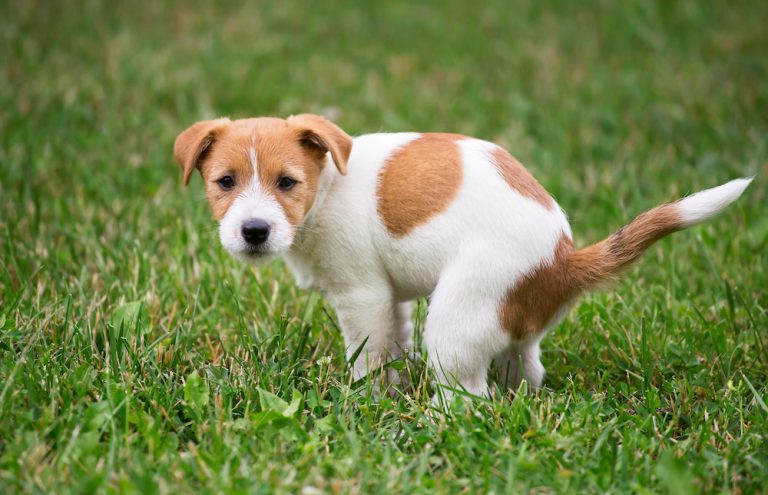
Eating poop due to inadequate nutrition, illness, or another gastrointestinal issue
What we mean: One school of thought holds that dogs might eat feces to compensate for a lack of nutrients or digestive enzymes. Some veterinary nutritionists poo-poo the nutrient-compensation angle, however, saying that pica (an appetite for non-food items) is typically more associated with GI disease than nutritional deficiency—so the behavior could instead be an indicator of a mild GI problem like nausea. Dogs who have conditions in which they’re not fully digesting their food may try to eat their waste—which, after all, may include pieces of undigested food. Illnesses like exocrine pancreatic insufficiency, Cushing’s, diabetes, and thyroid disease are sometimes associated with the behavior, as are parasites.
Poop consumption could also have to do with the microbiome. Feces contain a lot of bacteria, and some veterinarians say they could theoretically serve as a “natural probiotic.” We must stress that this is not an endorsement of poop eating, just a plausible explanation.
How to stop it: Talk to your vet. Step one with any possible medical issue is to talk to a veterinarian, who can examine your dog, run tests, and give you a more precise idea of what’s causing the problem. After that, they may prescribe drugs to treat an illness, advise you to adjust your pup’s diet, or recommend vitamin supplements. You could also ask about probiotics. On the subject of nutrition…
Feed your dog healthy, complete and balanced food: We can suggest a particular fresh, human-grade option that’s portioned for your dog’s needs and delivered right to your home. But whatever you choose to feed your pal, make sure it’s complete and balanced—and if you can work some fresh, whole vegetables and fruit into their diet, all the better.
Pet health is an important topic. That’s why The Farmer’s Dog editorial team carefully vets and reviews every piece of content we publish. We deliver evidence-based advice and medically reviewed facts that focus on pet nutrition, health, and well-being. The mission of this site is to help people provide the best care possible for their dogs by publishing only trustworthy, accurate, and timely health information from a group of passionate experts.



